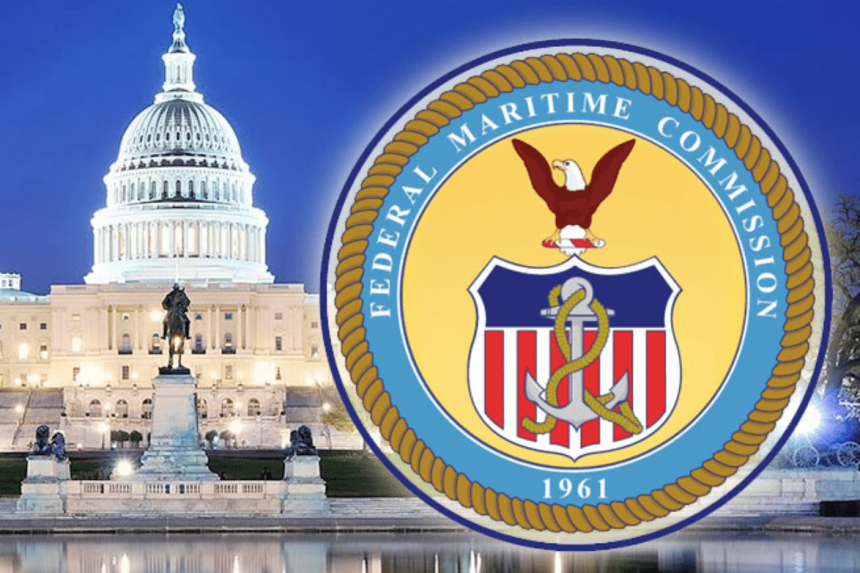From the Federal Maritime Commission:
The Federal Maritime Commission is conducting a nonadjudicatory investigation to examine whether the vessel flagging laws, regulations, or practices of certain foreign governments create unfavorable shipping conditions in the foreign trade of the United States.
The investigation commences with a 90-day public comment period. The Commission is seeking examples of unfavorable flagging laws, regulations, and practices that endanger the efficiency and reliability of the ocean shipping supply chain. The specific topics of Commission interest are enumerated in the order announcing this investigation.
The Commission is particularly interested in receiving comments from individuals and organizations with expertise or experience in vessel operations, international trade, international law, and national security. Examples of such commenters include other governments, international organizations, standards-setting organizations, shipowners, shipping companies, shippers, and organized labor groups.
Commenters may also identify actions that high-quality registries can take to lower costs and compliance burdens so long as they do not result in diluting standards.
The Federal Maritime Commission is authorized to conduct comprehensive investigations and take vigorous enforcement measures when appropriate, including when foreign laws or practices cause unfavorable shipping conditions.
The deadline for submitting comments is August 20, 2025.
The following is a post from the ITF:
The International Transport Workers’ Federation, to which the SIU is affiliated, has issued the following news item. MTD President David Heindel, who also serves as Chair of the ITF Seafarers’ Section, is quoted in the release.
The International Transport Workers’ Federation (ITF) is backing the US Federal Maritime Commission’s (FMC) domestic investigation into vessel flagging laws, including the long-abused practice of ‘Flags of Convenience’ (FOCs).
The FMC announced its probe last week, citing serious concerns that states operating FOCs are enabling a “race to the bottom” in global maritime regulations.
Maritime Trades Department President and ITF Seafarers’ Section Chair, David Heindel, said: “The FMC is absolutely right in its assessment of Flags of Convenience and the permissive environments they create for unscrupulous shipowners and operators. The very existence of the FOC system continues to stain the integrity of the maritime industry.
“This system thrives on weak oversight, allowing bad actors to exploit seafarers and shirk responsibility. We strongly support the FMC’s efforts to identify practical steps to introduce greater accountability across the world’s ship registries.”
The FOC system has been the subject of the ITF’s longest-running campaign – launched in 1948 – due to its role in circumventing labor regulations, suppressing wages, and enabling unsafe working conditions. The ITF regularly updates its FOC list, which now includes 45 registries, following the 2025 additions of Guinea Bissau and Tuvalu.
Heindel said: “As the ITF knows all too well, it is seafarers who pay the highest price for the egregious practices on FOC vessels. Governments, legitimate flag states, responsible shipowners, and insurers must unite to support the International Maritime Organization (IMO) in ending this shameful system.”
The dangers posed by FOC vessels extend beyond labor violations. The rise of the so-called “dark fleet” – vessels that obscure their operations to evade sanctions, engage in illicit trade or bypass safety regulations – has been greatly enabled by the lack of oversight inherent to the FOC system. These vessels often operate in the shadows, without transparency or accountability, posing a serious threat to global supply chains, maritime security and environmental safety.
The ITF’s work on seafarer abandonment underscores this risk. While over half the world’s fleet is flagged under FOC registries, a staggering 80% of abandonment cases in 2024 involved FOC ships. Last year alone, 3,133 seafarers were abandoned across 312 vessels – a sharp increase from 2023. In just the first five months of 2025, the ITF has already recorded 158 abandonment cases, affecting over 1,500 seafarers.
The FMC investigation will examine whether “the laws, regulations, and practices of foreign governments, or the competitive methods employed by owners, operators, agents, or masters of foreign-flagged vessels,” violate U.S. maritime law. The Commission has warned that this regulatory race to the bottom directly undermines “efficiency, reliability and safety”, threatening the ocean shipping supply chain.
ITF Maritime Coordinator, Jacqueline Smith, said: “We welcome the FMC’s timely and necessary investigation into how Flags of Convenience impact maritime safety and security – issues the ITF has campaigned on for over 75 years.
“There is no doubt that the expansion of FOC registries has weakened the IMO’s ability to enforce meaningful change. The IMO must be empowered and supported to lead on restoring integrity in vessel flagging.”
The ITF continues to call for international enforcement of UNCLOS Article 91, which mandates a “genuine link” between a vessel and its flag state. Without it, FOCs – and the shadow fleets they enable – will remain a dangerous loophole in the global maritime system.

